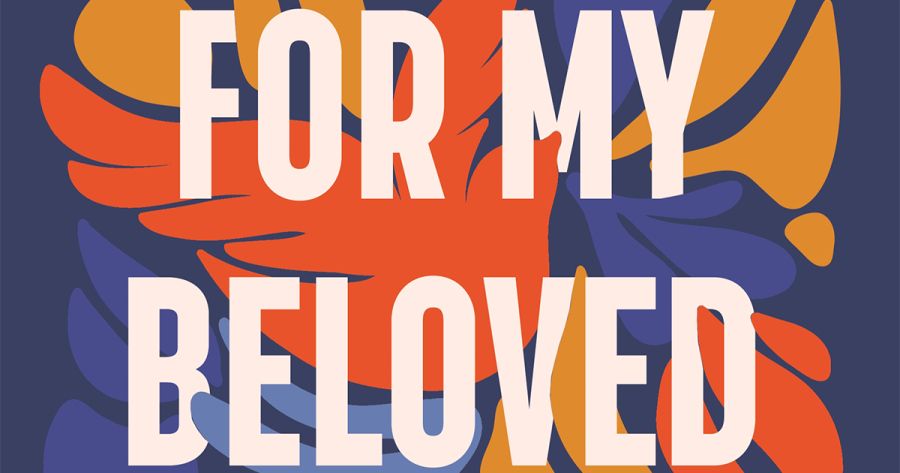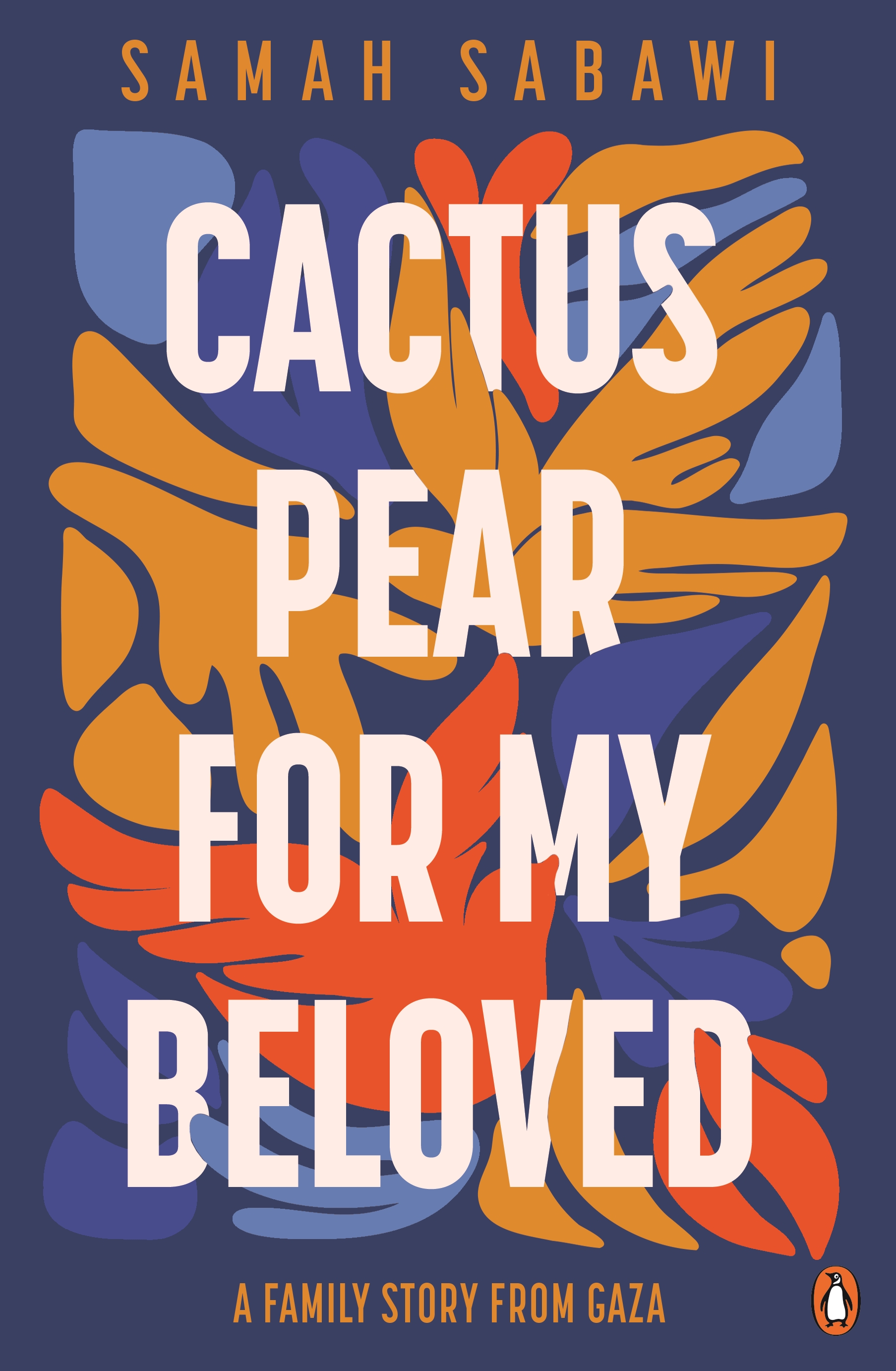
- Free Article: No
- Contents Category: Memoir
- Review Article: Yes
- Article Title: Majnoon’s shifting form
- Article Subtitle: How to return a life to its features
- Online Only: No
- Custom Highlight Text:
Majnoon, Arabic for ‘madness’, looms over the life of Abdul Karim Sabawi, whose story is the central thread in Samah Sabawi’s 2025 Stella-shortlisted offering, Cactus Pear for My Beloved. The madness first takes form as the town lunatic, who terrorises the boy and his mother at the local well with concocted Quranic incantations. Thereafter, the majnoon casts fear from the sky, his ‘senseless and ruthless violence’ manifesting as Israeli aeroplanes that shadow Karim’s childhood, adolescence, and young adulthood in Gaza, Palestine. Born in 1942, Karim witnesses Al Nakba:
- Book 1 Title: Cactus Pear for My Beloved
- Book 1 Subtitle: A family story from Gaza
- Book 1 Biblio: Penguin, $36.99 pb, 336 pp
- Book 1 Cover Small (400 x 600):

- Book 1 Cover (800 x 1200):

- Book 1 Readings Link: https://www.readings.com.au/product/9781761344978/cactus-pear-for-my-beloved--samah-sabawi--2024--9781761344978#rac:jokjjzr6ly9m
The images of madness from 1948 are all too familiar in 2025: starving children dominate the news, the living cling to the dying, and the Gaza of our screens is a stretch of desolation. At the time of writing this review, Anthony Albanese had just announced that Australia is to join with the United Kingdom, France, and Canada to recognise a Palestinian state, ahead of the UN General Assembly in September; it becomes redundant to describe Cactus Pear for My Beloved as timely. But while this narrative restores the memory of an unfathomably ‘beautiful vibrant city’ – Gaza as the rich cultural meeting point of poets and intellects – Sabawi’s work is not written for war: it is written for the future, ‘for our children’, for those who inherit stories, as Sabawi herself has. First completed as part of a PhD in intergenerational trauma, the book reads as a tribute to the life of her father, Abdul Karim – named in praise of the generosity of God – who was exiled from his homeland in 1967.
We begin in 2018. In Queensland’s Logan Shopping Centre, locals greet a man called George. A ‘vivacious blonde’ with a ‘husky voice’ winks as she confides to George, ‘I took your advice and sprinkled sumac on my fish.’ Sabawi bitterly remarks:
There goes my baba, exiled to the edge of the earth, leaning on his shopping trolley every day through this small-town mall, pretending to be someone else. Pretending to be George. George! A non-Arab, non-Muslim immigrant, who makes up for his heavy accent with a good sense of humour and a great deal of charm.
(I understood something of her ire; for many years I watched my late grandfather, Abdul Aziz – named in praise of the might of God – push trolleys through grocery stores in Melbourne, steadying himself proudly on nerve ends eaten away by rabid diabetes, nodding to blithe smiles and simplistic assumptions.) George ‘fits in places Abdul Karim does not’, and his portrait frames Cactus Pear for My Beloved. The figure is almost archetypal: stoic, philosophical, charming, the man who once roiled against the machinery of injustice now seemingly reconciled to his lot. But in a moment of revelation her father clarifies: ‘Exile refuses to take me anywhere but exile itself.’
Karim the exiled is retrieved through Sabawi’s account – an account that is, importantly, not just one of devastation. We see the young Palestinian boy flanked by grandmothers, brothers, a perpetually pregnant and indomitable mother, neighbours, chickens, and friends. We see him run through streets with names and fall in love with the abiding girl next door, Sabawi’s mother, Souhailah. His first job, secured at the age of seven, is guarding a merchant’s wares along a transport route to Gaza’s gold market:
Karim would climb over the sacks and lie down on his back … [He] relished the sensation of the wind brushing against his skin when the truck moved fast … inhaling the scents of coffee, flour and sugar … It was on top of the truck that he began to stitch together his first poetic verses.
Before becoming George, Karim becomes a nationally-lauded poet; a teacher channelling his keen scholarship; an editor of Akhbar Felesteen, Gaza’s first newspaper; a resistance fighter who would ‘rather die making noise in the back of the water tank, than suffocate in silence’ inside; and, finally, a refugee jumping ‘over the cactus hedge at the back of the garden, and into his exile’ as Israeli guards close in.
Unwittingly, this vivid reconstruction of home – a confluence of people, culture, language, landscape – brought to mind an unattributed quote I read on the walls of the Jewish Museum of Australia in St Kilda in 2022: ‘If one no longer has land but has the memory of land, then one can make a map.’ The Sabawi family have given us one here: a personalised orientation to a Gaza that thrums with the pursuit of knowledge, the persistence of love, and, above all, a perspective that embeds daily experience in the spiritual: Alhamdulillah is always on everyone’s lips.
Cactus Pear for My Beloved is tricky to categorise. It is a memoir, but not Samah Sabawi’s; a biography, but fictionalised. Sabawi is clear about inserting ‘shades of fiction’ to give breath to her project of contextualising the personal within a reclaimed collective. No one can begrudge her this impulse; the book illuminates and remains a powerful artefact of truth, even if it twirls upon a pin of research and sometimes tells it slant. Speaking for others can risk reducing inaccessible voices to tropes. In the case of Khadija, Karim’s mother, such nostalgic moments fall flat.
Khadija found happiness and love in the sheikh’s home. He relieved her of the burden of thinking and making decisions, and she took care of all the physical work required to keep the house and the school running. At night they took care of each other, and relieved each other of the day’s stresses. Her physical attributes complemented his intelligence. They fit together, and perfectly completed one another.
This is counterbalanced by tender recollections of mothers who are constantly bearing up; in one such instance, Karim is rescued from a flash flood by Khadija, who ‘waded into the water, one son in her belly and another in her arms, and carried him all the way home’.
Sabawi’s drive is towards a similar reunion. Cactus Pear for My Beloved, which was shortlisted in the Prime Minister’s Literary Awards shortly before this review went to print, certainly makes an urgent contribution to the discourse on justice; her Acknowledgement embraces ‘all indigenous people around the globe whose lands and cultures have been ravished by colonisation’, and who have no doubt witnessed or inherited the majnoon in the skies. But at its core it is a direct response to Abdul Karim’s own song: ‘Who else but you can gather my pieces / And return me to my features’. In this, I imagine, it is one of the highest forms of honour a daughter can bestow upon a father.


Comments powered by CComment